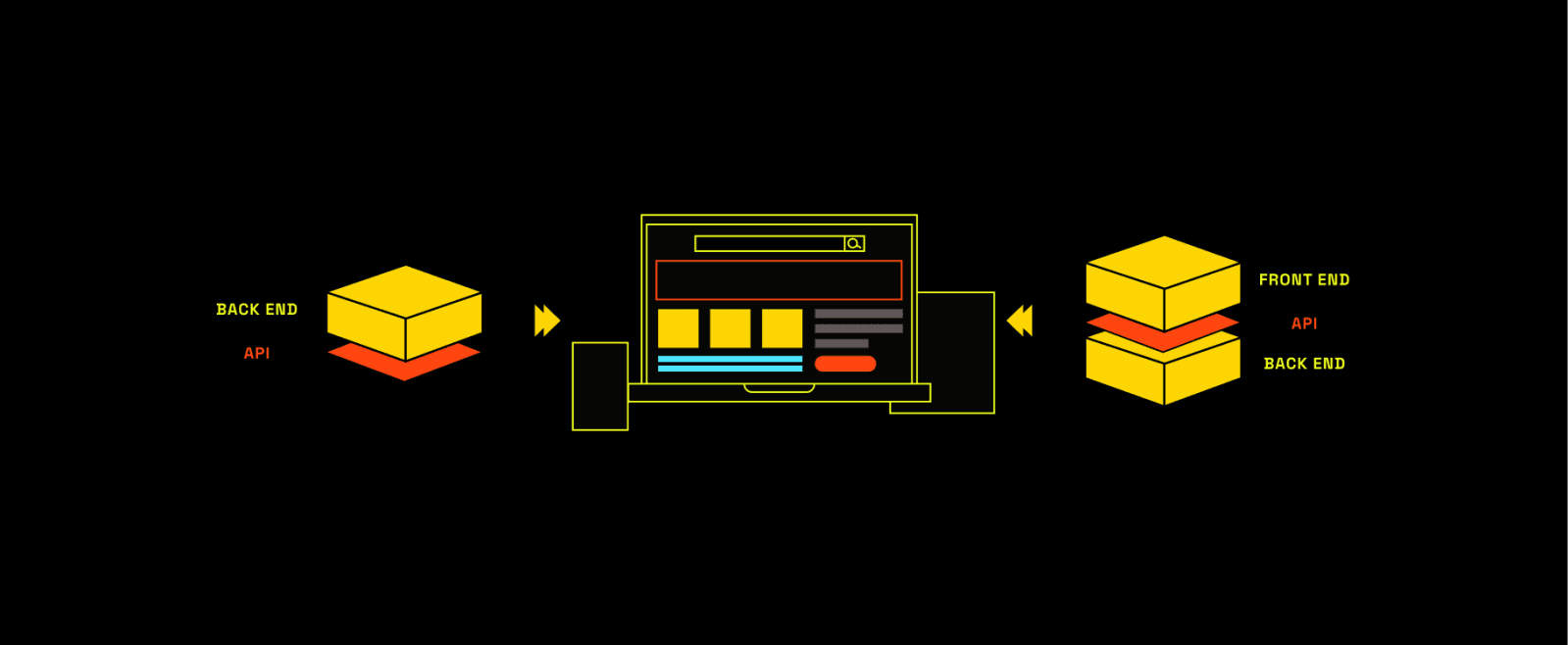WordPress or Squarespace: How to Choose the Best eCommerce Platform
Choosing between WordPress Vs Squarespace for your eCommerce website is a pivotal decision. WordPress offers a world of flexibility and customization as an open-source platform, ideal for those who crave control and bespoke solutions. Squarespace, in contrast, provides an elegant, all-in-one package, perfect for ease of use and streamlined design.
In this guide, we'll cut through the clutter to highlight the key differences between these two platforms. Whether it's pricing, customization, or user experience, I'll help you pinpoint the best fit for your online store. This article is set to enable you to focus on what's most important – selling your products and growing your business.
What is Squarespace?
Imagine a platform where creating a professional online store is as simple as piecing together a puzzle, but with all pieces perfectly cut to fit. That's Squarespace for you. It's a platform where technical complexities are unraveled into a user-friendly interface, allowing you to build a sophisticated website with ease. Squarespace stands out as a beacon for those who want to merge elegance with functionality, without delving into the nitty-gritty of web development.
Key Squarespace Features that I like -
- Round-the-Clock Support: Their 24/7 customer support is like having a tech wizard by your side, ready to tackle any issue that arises, ensuring your online store runs smoothly at all times.
- Seamless Integrations: The ease of integrating with essential services – from email marketing to accounting tools and shipping carriers – streamlines your operations, making business management a breeze.
- Versatile Functionality: Whether it's gathering newsletter signups, accepting donations, or managing event registrations, Squarespace's versatility caters to a wide array of business needs.
- Content Creation and Blogging Tools: These powerful tools are a boon for driving traffic, allowing you to craft compelling content that resonates with your audience and enhances your site's SEO.
- Insightful Analytics: The platform's metrics and analytics provide a window into your site's performance, offering valuable insights to fine-tune your strategies and boost your store's success.
Squarespace is a good choice if you are looking for a blend of style and simplicity in your platform. Plans are starting at $26 per month and include a free domain for the first year. It's an investment in hassle-free, elegant web design. And with a 14-day free trial, you can explore its suitability without any initial commitment.
What is WordPress?
At its essence, WordPress is a dynamic content management system (CMS) that powers a significant portion of the web. It's a platform that blends simplicity with extensive functionality, making it ideal for everything from personal blogs to robust eCommerce sites.
WordPress comes in two flavors: WordPress.org and WordPress.com. WordPress.org, often referred to as self-hosted WordPress, is where you have full freedom to build and customize your website with free access to themes and plugins. On the other hand, WordPress.com offers a more streamlined, hosted solution, simplifying some of the technical aspects at the cost of customization flexibility.
Key WordPress features that I like -
- Open-Source and Free: WordPress.org is completely free to use, offering unparalleled control over your website’s design and functionality.
- Extensive Customization: With a vast repository of themes and plugins, including those tailored for eCommerce like WooCommerce, the customization possibilities are endless.
- User-Friendly Interface: Despite its flexibility, WordPress maintains an accessible interface, suitable for both beginners and seasoned developers.
- Strong Community Support: The WordPress community is vast, providing extensive documentation, forums, and expert advice for any issues or enhancements.
- Diverse Payment Integrations: WordPress supports a wide range of payment gateways, crucial for eCommerce sites to accommodate various customer preferences.
- SEO-Optimized: WordPress is designed with SEO in mind, ensuring your site is easily discoverable and rankable by search engines.
eCommerce Plugin: For eCommerce, WooCommerce, a WordPress plugin, transforms your site into a full-fledged online store, complete with product listings, inventory management, and insightful sales analytics.
WordPress stands out as a versatile, powerful platform suitable for a wide range of websites. Whether you choose the self-hosted WordPress.org for complete control or the more managed WordPress.com, the platform offers robust solutions tailored to your needs, especially for eCommerce ventures.
Squarespace Pros and Cons
Squarespace is an popular all-in-one ecommerce platform, but it does have some downsides to consider:
Squarespace Pros:
- Ease of Getting Started: Squarespace is user-friendly, offering a variety of beautiful, ready-made templates. This simplifies the process of going from an idea to a live website, ideal for businesses eager to start making sales quickly.
- All-in-One Platform: Squarespace provides nearly everything you need within its dashboard. This includes domain registration, website building, and even Google Workspace integration, streamlining the process from start to launch.
- Intuitive User Interface: The platform is designed for ease of use. Its intuitive dashboard layout allows for straightforward page additions, blogging, and general site management, making it accessible even for those with limited technical skills.
- Cost and Time Efficiency: With Squarespace, there's no need for extensive web development knowledge or hiring developers, which can be a significant cost and time saver.
Squarespace Cons:
- Limited Customization: While Squarespace offers beautiful templates, there may be limitations in how much you can customize these designs, especially if you have specific, unique branding requirements.
- eCommerce Functionality: While Squarespace does provide e-commerce capabilities, it might not be as extensive or customizable as other dedicated e-commerce platforms, particularly for larger-scale online stores.
- SEO Limitations: Some users find Squarespace's SEO tools to be less advanced compared to other platforms, which could be a consideration for businesses heavily reliant on search engine visibility.
- Dependence on Platform: Being an all-in-one platform, there's a reliance on Squarespace for all aspects of your website, from hosting to functionality, which might not be preferable for those who want more control over their site's backend.
WordPress Pros and Cons
WordPress Pros:
- Cost-Effective: It's free to use, with costs only for hosting and any premium themes or plugins you choose.
- Extensive Customization: With over 50,000 themes and plugins, WordPress offers vast options for designing and adding functionalities to your online store.
- SEO-Optimized: Built-in SEO features like customizable page titles and meta descriptions help improve your site's search ranking.
- Complete Control: Being open-source, WordPress allows you to modify the platform to your specific needs, including editing code and creating custom themes.
WordPress Cons:
- Learning Curve: WordPress can be complex, especially for beginners, with a dashboard and coding requirements that take time to master.
- Self-Hosting Required: You need to find and pay for web hosting, adding to the cost and technical aspects of running your site.
- Security Management: As a popular open-source platform, WordPress is a target for hackers, necessitating regular updates and strong security measures.
- Varied Theme Quality: While many free themes are available, some may look outdated. Premium themes, offering better design, can add to your expenses.
Squarespace vs WordPress 7 Key Differences
As someone who has navigated the intricacies of both platforms for various projects, I've come to appreciate the unique strengths and limitations each brings to the table. I have always believed that a well-structured comparison table is invaluable. It cuts through the marketing noise and lays out the facts plainly, allowing you to make an informed decision based on your specific needs.
| Feature | WordPress | Squarespace |
|---|---|---|
| Design | Offers a wide range of free and paid templates, but customization often requires technical skills. | Known for beautiful, modern templates with easy drag-and-drop customization, requiring no coding experience. |
| Features | Extensive range of eCommerce plugins and integrations for advanced features like subscriptions and product reviews. | Solid built-in eCommerce features but fewer options for expanding functionality compared to WordPress. |
| Pricing | Free to download, but additional costs for eCommerce plugins, premium themes, and hosting. | Plans start at $12/month, including eCommerce features; more cost-effective initially. |
| SEO | Slightly better for SEO with more control over page titles, meta descriptions, and URL structures. | Provides solid SEO features, but slightly less control than WordPress. |
| Learning Curve | Steeper learning curve, requiring more time to master setup and customization. | Extremely user-friendly, easier to use with little technical knowledge required. |
| Flexibility | Highly flexible and customizable, ideal for unique or specific eCommerce needs. | Less flexible than WordPress, but offers a streamlined and cohesive design experience. |
| Community Support | Large community for support, extensive documentation, and forums available. | Offers 24/7 customer support and live chat, but less community-driven than WordPress. |
| Security | Requires active security management due to being open-source. | Handles security in the background, offering a more managed experience. |
Costs: WordPress or Squarespace - Which Is More Affordable?
In my opinion, WordPress may have a slight edge on cost due to its open-source nature, but Squarespace could save you time with its simplified all-in-one platform. It comes down to your priorities and how much control you want over the pricing. If budget is a concern, I would recommend starting with WordPress and WooCommerce, then upgrading as needed. Let’s take a closer look at their pricing structure -
| Feature | Squarespace Pricing | WordPress Pricing |
|---|---|---|
| Plans | 4 premium plans | - Free (platform) |
| - Additional costs for hosting, themes, plugins, and domain names | ||
| Pricing Range | $16-49 per month (billed yearly) | - Hosting: Approximately $7 per month |
| - Themes: $30-$80 | ||
| - Plugins: $15-$50 | ||
| - Domain Names: $10-$12 per year | ||
| - Developer Costs (if needed) | ||
| Annual Plan Savings | 25% to 30% savings | N/A (WordPress is free, but hosting and additional costs apply) |
| Plan Details | - Personal: $23/month or $16/month (annual plan) | - WordPress platform is free |
| - Business: $33/month or $23/month (annual plan) | - Hosting costs approximately $7/month (varies by provider) | |
| - Basic (eCommerce): $36/month or $27/month (annual plan) | - Themes can range from $30 to $80 | |
| - Advanced (eCommerce): $65/month or $49/month (annual plan) | - Plugins can cost between $15 and $50 | |
| - Domain names cost $10-$12 per year | ||
| - Developer costs can vary significantly | ||
| Target Audience | - Individuals and small websites | - Anyone looking for a flexible and customizable website solution |
| - Basic online presence | - Ideal for individuals, businesses, bloggers, and online stores | |
| Notable Features | - Stylish website creation | - Highly customizable |
| - Limited basic eCommerce | - Vast library of themes and plugins | |
| - Marketing features | - Suitable for various types of websites | |
| - Developer-friendly and highly flexible | ||
| Domain Name | Included in Squarespace plans for the first year | Additional cost (approximately $10-$12 per year) |
| Hosting Provider | Squarespace hosts your site | You need to select a hosting provider separately (e.g., BlueHost, DreamHost, SiteGround) |
| Additional Costs | Limited to plans and domain renewal after the first year | Hosting, themes, plugins, domain name, potential developer costs |
| Flexibility and Complexity | Less complex but limited flexibility in terms of certain integrations | Highly flexible but potentially more complex to set up and maintain |
| Overall Cost Range | $16 - $65 per month (billed yearly) | Approximately $7 per month for hosting, plus additional costs based on your needs |






